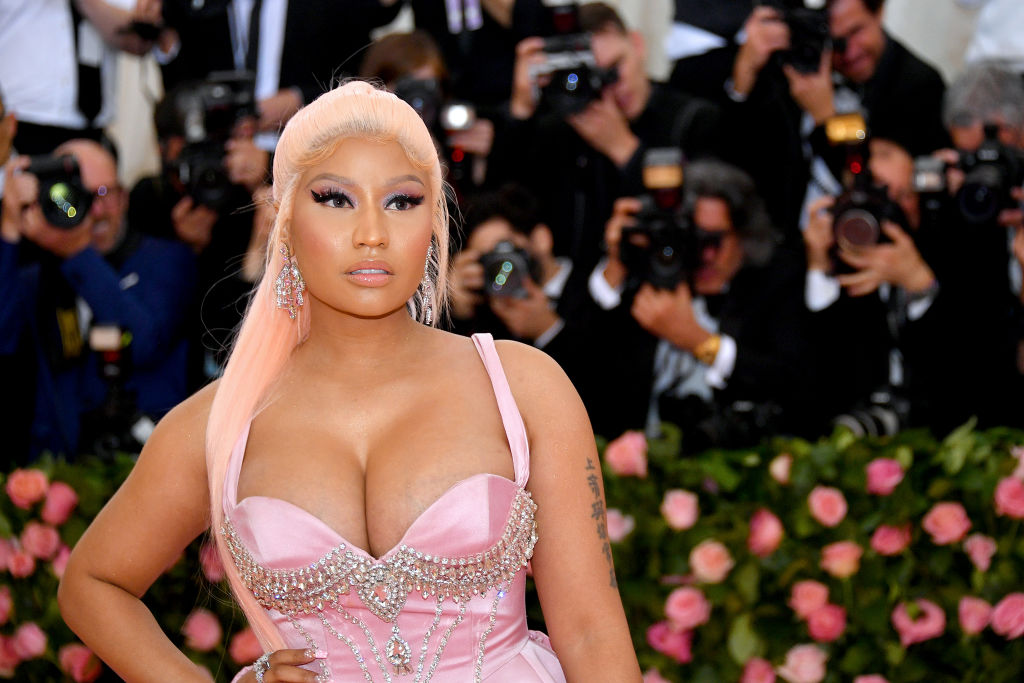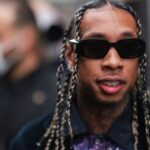
Source: Dia Dipasupil / Getty
It’s been about a month since Nicki Minaj gave us all her two cents about the vaccine and now she believes she’s suffering consequences over it. In an Instagram Live on Oct. 11, the “Chun Li” rapper told the Barbz that she believes she’s been shadow-banned.
“I think I’ve been shadow-banned on a couple social media outlets because of my comments about the [vaccine],” she said.
According to Oxford, when someone is shadow-banned on social media, it means that a user has been blocked “from a social media site or online forum without their knowledge, typically by making their posts and comments no longer visible to other users.” Hootsuite noted that when someone thinks they are shadow-banned, their “posts, comments or activities may suddenly be hidden or obscured” and they “may stop showing up in searches, or see a drop in engagement because no one (including your followers) can see your content in their feeds.”
Adam Mosseri, the head of Instagram, has denied that shadow-banning is real.
I asked @mosseri this question, knowing full well how he was going to respond.
There you have it guys. Again.
Shadowbanning is not a thing. #SMSpouses pic.twitter.com/LXGzGDjpZH
— Jackie Lerm 👩🏻💻 (@jackielerm) February 22, 2020
After Minaj tweeted that her cousin’s friend in Trinidad got the vaccine and then suffered from a case of testicles afterwards, she was accused of spreading misinformation about the COVID-19 vaccine due to implying that the vaccine caused such a alarming side effect.
“My cousin in Trinidad won’t get the vaccine cuz his friend got it & became impotent,” Minaj continued. “His testicles became swollen. His friend was weeks away from getting married, now the girl called off the wedding. So just pray on it & make sure you’re comfortable with ur decision, not bullied.”
Twitter even posted a disclaimer on their landing page about her comments.
“Contrary to myths circulating on social media and to rapper Nicki Minaj’s tweets during the Met Gala, medical experts and public health organizations say there is no evidence that COVID-19 vaccines affect male fertility,” the page read. “According to the CDC, professional societies for male reproduction recommend men who want to have babies in the future get a COVID-19 vaccine as “there is no evidence that vaccines, including COVID-19 vaccines, cause male fertility problems.”


